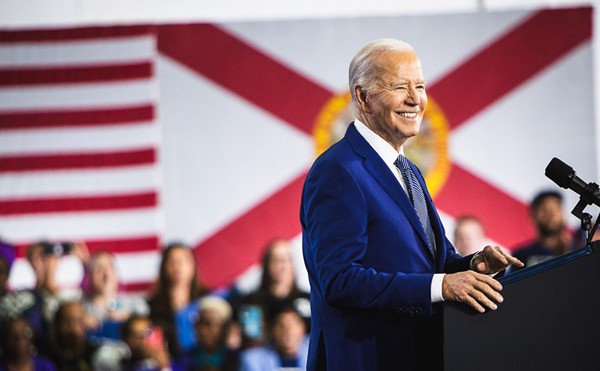The news barely created a ripple in the U.S. political world, but it was still significant: Earlier this month the Democratic Leadership Council (DLC) had died after 26 years in existence.
The National Journal's Ron Brownstein reported on its demise nearly two weeks ago.
The DLC was formed shortly after Ronald Reagan demolished Walter Mondale in 1984, the election in which the former Minnesota Senator and Vice President to Jimmy Carter lost in nearly every state, save his home state. Their impact wasn't immediately felt in national elections, as the Democrats lost again in 1988, when Mike Dukakis lost big to George H.W. Bush.
But its centrist message was something that Bill Clinton totally bought into, and helped him capture the White House in 1992.
The group was formed by a Democratic congressional aide named Al From, who according to Brownstein, launched the group by recruiting about 75 of the party’s legislators and governors, most of them Sun Belt moderates. The group was formed as a rebuke to what they considered too liberal Washington D.C. Democrats, and Clinton's election success catapulted the group to prominence.
Other notable DLC "alums" over the years included Al Gore, Evan Bayh, Mark Warner, Joe Lieberman, Sam Nunn, Dick Gephardt and yes, locally, Tampa mayoral candidate Bob Buckhorn.
In 2005, From said of Bill Clinton,
"By tempering the excesses of capitalism, Roosevelt saved capitalism. By modernizing progressive governance, Clinton saved progressive governance."
In 2000, Clinton had said this of Al From:
"It would be hard to think of a single American citizen who, as a private citizen, has had more positive impact on the progress of American life in the past 25 years than Al From."
Although the DLC is dead, centrism in Democratic politics is certainly not. Nor is their influence with the Democratic Party, as Matt Bennett with Third Way said earlier this month:
"The most enduring victory the DLC won was fundamentally changing the nature of Democratic politics. The party looks nothing like it did when they came along in the mid-1980s, when it was completely in the thrall of special-interest groups."
Other centrist, Democratic oriented think tanks have been created, such as the above mentioned Third Way and No Labels. Earlier this month, William Galston and Elaine Kamarck, both DLC alums, wrote an essay for the Third Way in which they posit that the loss of moderates from the political and policy process—is the root cause of the current crises in governance and politics.
It is in the long-term interests of the Democratic Party to champion reforms
that will level the playing field for the moderate voters and candidates that
comprise such a critical segment of the Democratic coalition. But not only will
Democrats benefit from giving moderates increased attention and weight, so
will the political system as a whole. Polarization will diminish, and policy-making
will be more likely to yield sustainable outcomes that large majorities of the
electorate can endorse.
These reforms will address a central source of public dissatisfaction with mod-
ern politics: it will ensure that the system fairly and fully reflects the sentiments of
moderate citizens whose voices are muted by current political arrangements.
Another Third Way alum is now Barack Obama's Chief of Staff, William Daley, who certainly has considerable influence within the White House. His selection led to a certain amount of derisive chortling from liberals, but obviously if the President is going to win re-election in 2012 he's going to need to bring back independents that he lost in 2010.
Although the DLC is dead, centrism in Democratic politics is certainly not. And the results of what have happened since the Democrats' success at the ballot box in 2008 should confirm that whether it's a center-right nation or a center-left one, the emphasis in winning national elections has to be on the center.















